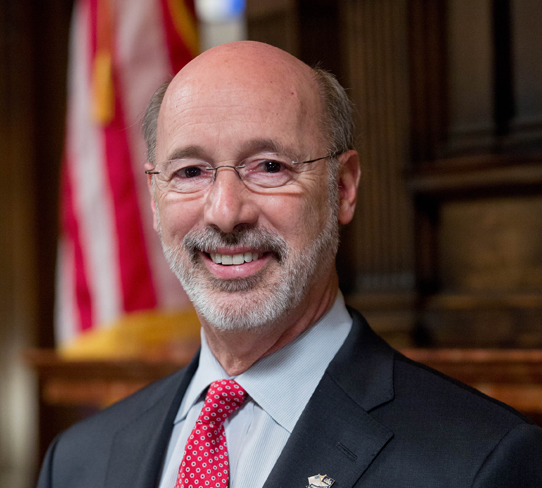HARRISBURG – The state House overwhelmingly passed a bipartisan budget agreement, based on the original House Republican “smart budget,” which answers the challenge to deal with a potential $3 billion shortfall and begins the process of reinventing Pennsylvania government.
Without raising the income or sales taxes, the budget provides additional funding for key education and public safety programs. House Bill 218 passed the House today by a vote of 173-27, House Republican leaders said.
According to the leaders, the bipartisan budget supports additional funding for schools, pension obligations and services for the intellectually disabled, but demands additional savings across state government agencies and programs, including Medicaid. The budget also shows savings from the shrinking prison population.
“This budget begins the process of a government reinvention – plotting a new course for Pennsylvania, punching holes in bureaucracy and pushing the focus on government’s core functions,” Majority Leader Dave Reed (R-Indiana) said.
“This budget may not be perfect, but it accomplishes many core goals on which we as Republicans and Democrats stand together. This budget looks to address the major cost drivers that continue to plague our budget situation year after year after year.”
“While reflecting our continued commitment to controlled spending, this budget does not rely on onerous job-crushing tax hikes originally proposed by the governor,” Speaker of the House Mike Turzai (R-Allegheny) said.
“This bipartisan, no income or sales tax increase budget places priorities on core government functions, especially quality education for our children.”
The spending plan in House Bill 218 is based on the original House Republican budget passed in April, but is the result of tough negotiations with the Senate Republicans, House and Senate Democrats and Gov. Tom Wolf.
Total General Fund spending is $31.996 billion. The April 4 House Republican budget totaled approximately $31.8 billion and the governor’s proposal would have spent $32.6 billion.
“House Republicans succeeded in keeping spending in check while negotiating this final bipartisan budget,” House Majority Whip Bryan Cutler (R-Lancaster) said.
“We began the discussion to reinvent and restructure state government last session and through this budget, we are merging four agencies into two, and making everyone focus on the core functions of government, which our taxpayers expect.”
While acknowledging more needs to be done, this budget, the leaders said, begins the process of eliminating duplicative services and reducing overall costs to encourage reform and innovation, while ensuring funds are available for core government services.
“We appreciate Gov. Wolf taking our suggestion seriously to look at changing state government and how it operates,” Reed said. “By reducing and eliminating outdated bureaucratic expenditures, without raising taxes, we can redirect needed funding to government’s core functions like education, infrastructure, public safety and human service programs.”
The bipartisan budget agreement reflects the merger of the Department of Human Services and the Department of Health into a combined Department of Health and Human Services.
The merger of the Department of Corrections with the Board of Probation and Parole is also included in House Bill 218. Legislation to officially combine these agencies will be forthcoming over the next few weeks.
“We are devoting $11.8 billion, or nearly 40 percent of the General Fund, to PreK-12 education through our fiscally responsible approach – without imposing new or increased taxes on hard-working Pennsylvanians or employers,” Appropriations Committee Chairman Stan Saylor (R-York) said. “We took a responsible approach to craft a sustainable budget.”
Reaffirming the House Republican commitment to education at all levels, House Bill 218 would help provide Pennsylvania’s students with a quality education from the youngest ages through college:
- Increases Basic Education Funding through the fair funding formula by $100 million to $5.995 billion.
- Restores the governor’s harmful Pupil Transportation cut to school districts.
- Increases early childhood education funding (Pre-K Counts and Head Start) by $30 million to $226.5 million.
- Increases Special Education Funding by $25 million to $1.122 billion.
- Sets a record high $11.86 billion for PreK-12 education – in fact, with this budget, Republicans will have increased PreK-12 education by more than $1 billion since the 2015-16 fiscal year.
- Increases funding for the State System of Higher Education by 2 percent ($8.84 million).
- Increases funding for Thaddeus Stevens College of Technology by $664,000.
“Restructuring takes time,” Saylor said. “It’s going to take us a couple of years to restructure Pennsylvania completely, but this is an excellent start and when we move towards performance-based budgeting, we will see even better results.”
The bill now goes to the governor’s desk.



